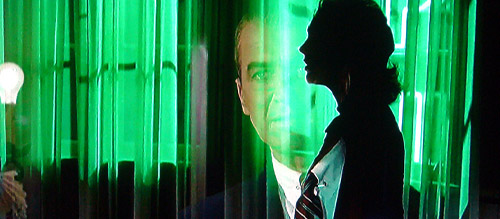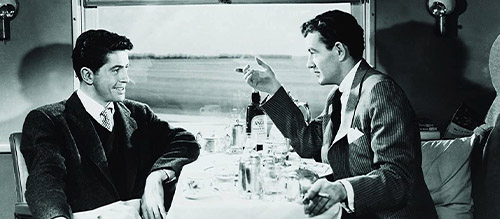Top 10 Alfred Hitchcock Films
Alfred Hitchcock has a very good claim to being the most famous film director of the 20th Century. Not only was he responsible for some of the most well-known movies of all time, but Hitchcock was an instantly recognisable figure in his own right, making cameos in nearly all his films and promoting them personally on the radio and TV, in addition to giving cinemas iron-clad rules for exactly how to show them. Born in Essex, the would-be biggest filmmaking export in British cinema history started as a successful director in the UK before becoming a smash-hit maker upon his move to Hollywood where, in over six decades, he directed more than 50 feature films.
Now noted as a key influence on some of the most prominent filmmakers of the contemporary era, such as The Coen Brothers and M. Night Shyamalan, Hitchock’s directorial catalogue is one that blazed a trail for new techniques and is known for perfecting old tropes. What follows is The Film Magazine’s list of ten of the very best works from the Master of Suspense.
Make sure to let us know your favourite Hitchcock films in the comments, and be sure to follow us on Twitter to stay updated on when we publish new lists and articles.
10. Vertigo (1958)
An ex-cop accepts a job to tail a friend’s wife and document her erratic behaviour but rapidly loses his grip on reality in the process.
This is the one a lot of cinephiles go nuts for, and it’s easy to see why. Technically flashy, thematically layered and narratively murky, Hitchcock was making art with Vertigo and wanted his audience to work a little to extract the usual pleasures his films offer.
This only just makes the cut by virtue of being a significant and fascinating film. But, when viewed with modern eyes, the gender politics and the character motivations are prehistoric and really quite disturbing – the film’s women are plot devices to be offed, resurrected, remade and offed again all at the whims of men. Hitchcock has had a lot of accusations leveled at him over the decades particularly in regards to his treatment of women, and this is perhaps the film where despite the undeniable level of craft on display his detractors are proved the most correct.
9. Strangers on a Train (1951)
An unstable rich kid and a rising tennis star meet on a train and agree to each commit a murder in the other’s name to avoid suspicion.
How wrong can the perfect double murder go if one party is unwilling and the other is a complete sociopath? Hitchcock loved getting us to empathize with killers and presents us with one of the great charming madmen here in Bruno (Robert Walker). The film is also technically dazzling, from lighting studio recreations of affluent Washington streets like a film noir to destroying a fairground carousel spinning out-of-control in the finale.
Strangers on a Train is unsubtle even for Hitchcock, his tension-building strategies effective but transparent. As if the ticking clock of a drawn-out tennis match getting in the way of stopping the villain’s scheme wasn’t enough, we also have to agonisingly watch Bruno fish around for incriminating evidence he drops down a drain.




I agree with Vertigo at Number 10, a spooky and surreal film but the gender politics really pissed me off